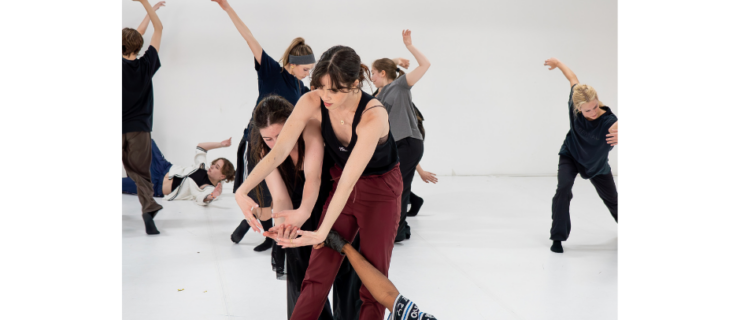Advice For Dancers
Q
The casting sheet went up today and my name isn’t on it! I used to dance ballerina roles before I injured my foot. My director knows that everything’s healed. I’m worried that he’s lost interest in me.
Cast Away
Chicago, IL
A
It’s time to talk! Lack of communication can foster needless self-doubt. Sit down with him and find out where you stand. It’s possible he wants you to ease back into your old repertoire to prevent re-injury. That would be smart. Most of the combinations in dance class don’t prepare you for today’s high intensity choreography, and jumping back into a high-octane performance schedule is courting disaster. Of course, there’s also a chance that your director is trying out new dancers. While you might feel anxious about that, it doesn’t mean he won’t ever use you again in the same way as he did. Ask for a meeting, and keep your focus on your dancing. Take company class and add cross-training during slow periods to improve your stamina.
Q
My health club is offering a Pilates mat class. Is this a good way to stay in shape? It doesn’t include machines like the reformer, but my friend says it strengthens her abs. I’m not flabby, but in my opinion, my stomach could use some help.
Jen
NY, NY
A
All dancers can benefit by strengthening their core (abs, hips, and pelvis) with exercises derived from supplemental training. Working different muscle groups can also correct imbalances that occur in every technique, whether it’s ballet, modern dance, or jazz. The trick is to add these extra workouts during slow periods, such as a long summer break or a light rehearsal schedule, rather than risking burnout by exercising when you’re tired from a busy dance schedule. You also need to be smart about choosing the right instructor and type of class. While a Pilates mat session seems ideal, a large group class can make it difficult for the instructor to tailor the movements to suit individual bodies. A dancer who has a problem, like a finicky back, might end up doing exercises that create further problems. Let the teacher know what your problem areas are. And if something starts to hurt, stop. All programs should begin gradually to ease muscles through the new exercises and give your body time to adjust. Variations in the content, intensity, and duration of the workout will also help you to steadily improve.
Q
Ever since I decided to lose 10 pounds, I feel like I’m in food prison. I’m following a strict diet, with no sugar, candy, or desserts. I go to the gym. The weight is coming off. But I obsess about food every minute of the day. It’s making me berserk. I don’t know how long I can keep it together before I lose control and everything falls apart. Help!
Diet Disaster
Greenville, SC
A
Welcome to every dieter’s dilemma. No matter how good your intentions, the drive to lose weight can backfire at a moment’s notice. The answer is not as simple as lack of willpower. While reducing calories and adding aerobic exercise and weight training lead to weight loss, psychological factors can throw you off track. Let’s start with deprivation. No one enjoys cutting out all sugar and fat. If you take it to an extreme, you often set yourself up for binge eating. It may pay to avoid trigger foods (all of us have them) such as ice cream or candy, where your eating becomes compulsive. Similarly, stress can be a tipping point for grabbing a bag of chips instead of raw carrots. It helps to see a counselor who specializes in eating issues, and a nutritionist who can create a balanced menu based on your own tastes, so you won’t suffer those intense feelings of deprivation. For more information about specialists near you, contact The Renfrew Center (800-RENFREW).
Q
I’ve been working on overcoming extreme fatigue by backing off from summer intensives, and focusing on going to the gym, stretching, and taking several dance classes a week. It’s hard to believe but I actually feel better. My dancing and technique have improved, yet I’m working less. How weird is that?
Kim
Washington, DC
A
Like athletes, dancers need periods where they do little intense activity. I’m so glad you took the chance. While many dancers feel lazy if they back off an intense schedule, less is more if you have been cramming everything in. Now, the challenge is to continue to pace yourself rather than diving into another intense program before your body has recovered. Burnout is a serious health problem that affects your immune system, appetite, sleep patterns, and vulnerability to injuries. Smart dancers pace themselves, and as a student, you have more choices to structure your schedule than a professional whose job might be on the line. When in doubt, remember that fatigue is the number one cause of dance-related injuries.




